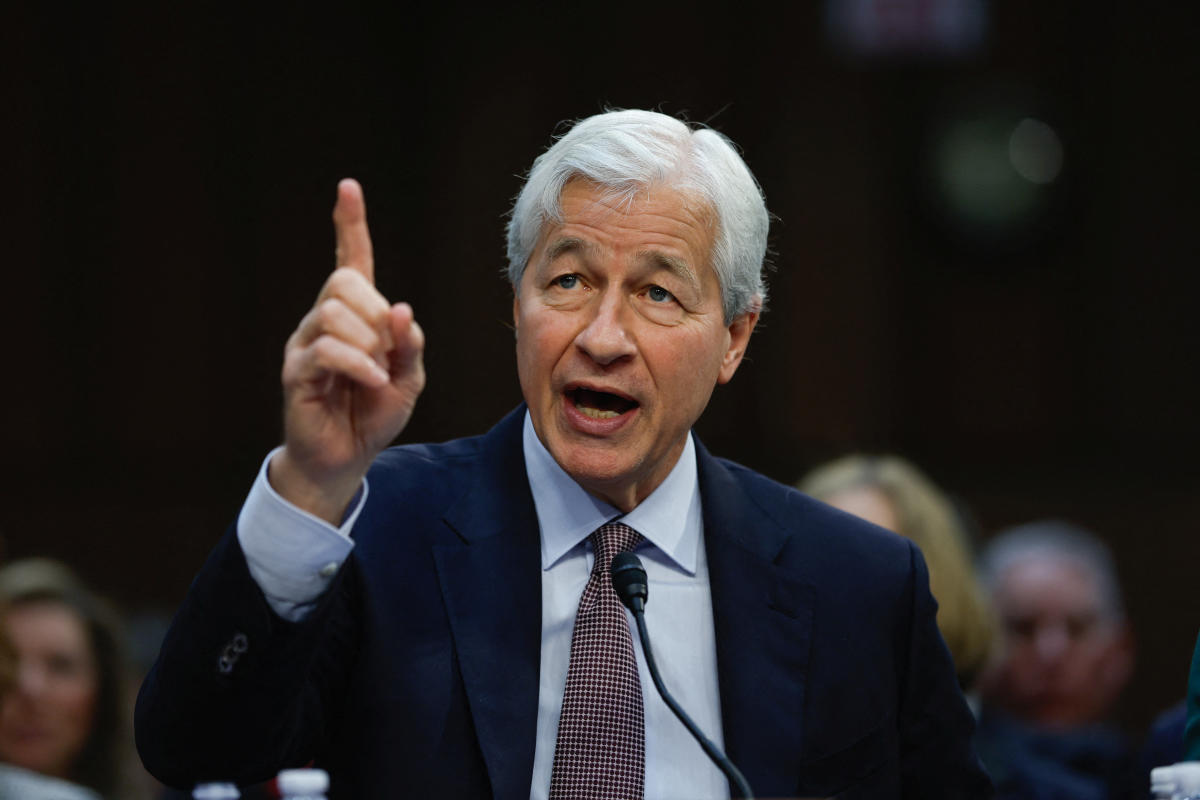Last year, JPMorgan Chase (JPM) churned out more profits than it ever has before as it earned $14 billion in the final quarter of 2024.
Its full-year profits rose to $58 billion, an all-time record for JPMorgan and the most ever in the history of American banking. Its fourth quarter profits were up 50% from the year-earlier period.
Those results were buoyed by a surge in JPMorgan’s Wall Street operations as dealmaking makes a comeback across the industry following a two-year drought. JPMorgan’s investment banking revenue was up 49% from a year earlier.
Trading revenue also rose 21% in the fourth quarter as JPMorgan and other big Wall Street giants benefitted from volatility surrounding the US presidential election last November.
CEO Jamie Dimon touched on succession while speaking Wednesday morning. He told analysts that a few more years as CEO is the “base case,” and he told reporters that a management reshuffling announced Tuesday “doesn’t change the timeline at all.”
The bank on Tuesday elevated Jennifer Piepszak to COO, replacing Daniel Pinto, but said that Piepszak doesn’t want to succeed Dimon as CEO — raising new questions about Dimon’s ultimate replacement.
Last year, the 68-year-old Dimon said his timeline for stepping down “isn’t five years anymore.”
Strong Wall Street results helped other big banks in the fourth quarter, including Goldman Sachs (GS), Citigroup (C), and Wells Fargo (WFC).
Goldman’s earnings in the fourth quarter jumped 105% to $4.1 billion, and its full-year profits jumped 68% to $14.2 billion. Its investment banking fees in the fourth quarter were up 24%.
“We are very pleased with our strong results for the quarter and the year,” Goldman CEO David Solomon said in a release.
Wells Fargo’s investment banking fees increased 59% in the fourth quarter compared with a year earlier, and its fourth quarter earnings rose to $5.08 billion compared with $3.45 billion a year earlier.
Many bankers hope the dealmaking revival will continue in 2025 as the GOP takes over Washington. The stocks of the biggest US lenders rallied following the election of Donald Trump on hopes that his administration would loosen some rules and apply more leniency in approving corporate mergers.
The Trump administration is expected to scrap or revise a set of proposed capital rules that would have crimped future industry profits.
“We have consistently said that regulation should be designed to effectively balance promoting economic growth and maintaining a safe and sound banking system,” Dimon said in a press release. “This is not about weakening regulation … but rather about setting rules that are transparent, fair, holistic in their approach.”
